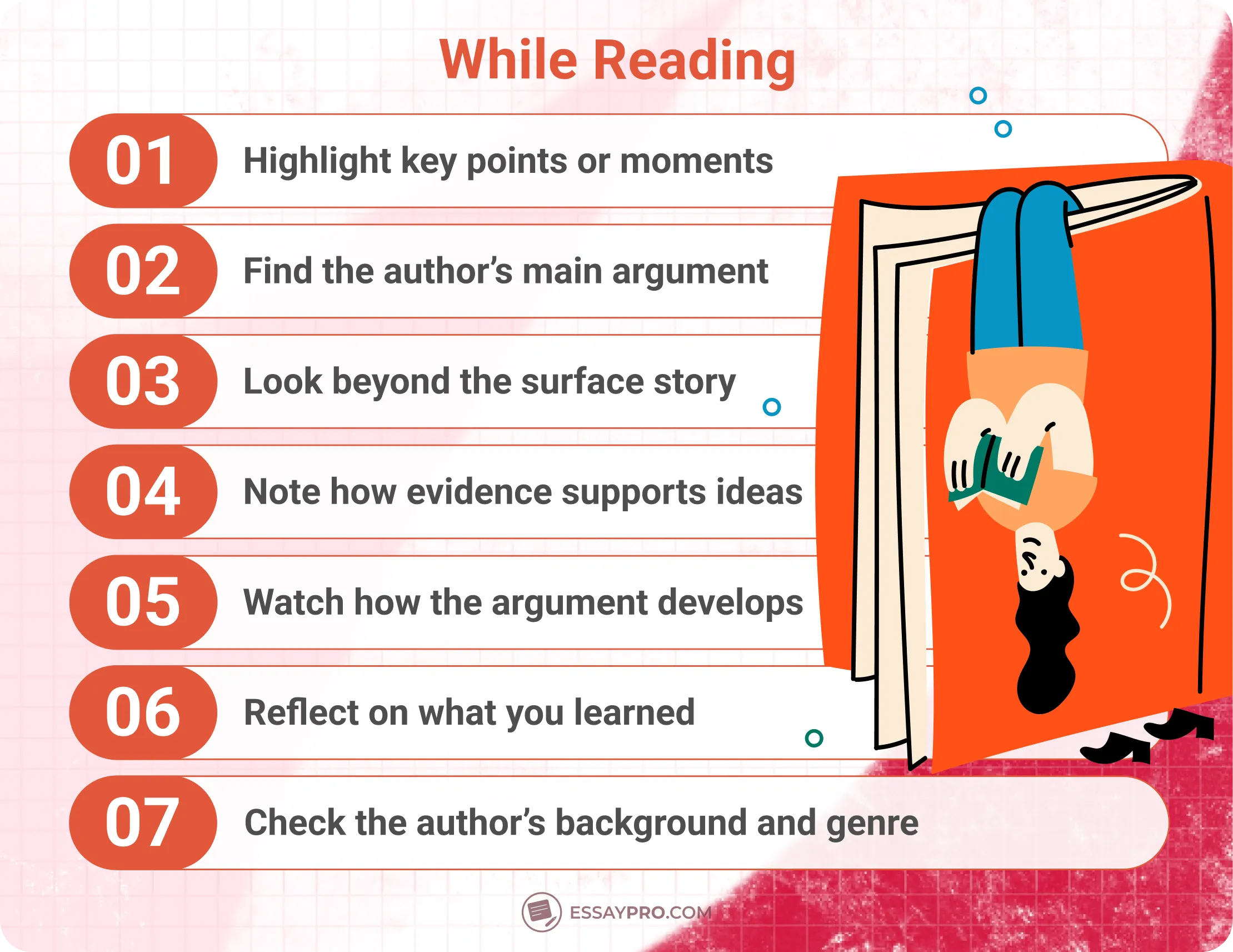According to a study analyzing weekly hardcover fiction sales, a positive review in The New York Times can boost book sales by 62.9%. Even a negative one bumps it up by over 34%. That’s how much power a strong book review holds! That is also why understanding how to review a book makes a huge difference.
Still, many students hit a wall the moment they try to start writing. It’s easy to overthink what belongs in each part or how much analysis to include. Some worry they’ll summarize too much, others fear their opinion won’t sound 'academic' enough. This guide clears up confusion.
And if the deadlines are closing in, don’t forget that EssayPro is always a solid option. Just ask, ‘Can someone write paper for me?’ and our team can step in with just the right kind of support.
What Is a Book Review?
A book review is a written evaluation of a book’s content, purpose, and effectiveness. The reviewer summarizes the main ideas while offering an informed opinion about the author’s argument, style, and overall value of the work. The goal is to assess how successfully the book achieves its aims and to help readers understand its significance within its genre or field.
In an academic setting, book reviews demonstrate comprehension, critical thinking, and the ability to express an independent perspective. They show that you can analyze the author’s methods, evaluate supporting evidence, and draw thoughtful conclusions. For expert help with this type of writing, you can always rely on EssayPro’s book review writing service.


Getting Ready Before You Write the Review
Before you start figuring out how to write a review for a book, take a step back and read slowly. Pay attention to how the author builds ideas and moves between them. A clear book review outline comes from noticing the small details that give the text its meaning.
Here’s what to keep in mind while reading:

- Go through the book once without overthinking. Then read again and highlight anything that stands out.
- Identify the main idea or central argument the author wants to prove.
- Define what the book is truly about beyond the surface story or topic.
- Examine how the author supports their points. Do they use facts, examples, or personal experiences?
- Observe how the argument develops. Does it stay consistent or shift directions?
- Reflect on what the book added to your understanding of the subject.
- Learn more about the author. Their background often explains why they approach the topic in a certain way.
- Note the genre. The expectations for fiction differ from those for history or essays, and that affects how you evaluate it.
When you gather these relevant details, writing book reviews feels easier because you already know what matters. And if putting your thoughts together still feels complicated, EssayPro’s book report writing services can help you organize your notes into a clear, complete work.
How to Write a Book Review Step by Step
Strong reviews don’t necessarily come with complex formulas. You just need to have a clear opinion on the book and organize your thoughts according to a straightforward structure. Start by learning how to summarize a book in a sentence or two, then move into your analysis and evaluation. The four steps described below will give you an idea about how to write a story review that actually feels useful for the reader.
Make a Short Summary of the Book
Start your review with just enough of a summary to provide the reader a general idea of what the book is about. Don’t retell the whole plot or go through the entire book sentence by sentence. You just need to cover the basics: the plot, the main idea, and the experience that the story gives. Keep this section neutral, you’re not sharing your opinion just yet. You’re simply giving the reader some context so they can follow your thought process when the time comes.
Analyze What You Liked About the Book
Now it’s time for your honest reaction. What parts of the book stood out the most to you? Talk about how the writing style felt and whether the character development kept you hooked. Tell the reader what exactly made you want to keep reading. Discuss a few specific things in this section, as well: it could be a scene that hit especially hard or a line you couldn’t get out of your head. Don’t generalize too much, and make sure your writing doesn’t sound overly formal or academic. Just use your own words to tell what worked and why it worked for you. Your review will feel like a real conversation if you keep the tone personal and specific.
Evaluate the Book’s Strengths and Weaknesses
Every book has sections that work well and those that don’t. Your job is to weigh those aspects objectively. Identify where the author succeeds and where the reading experience isn’t as smooth. For example, the pacing is slow, the argument is not sufficiently backed up by evidence, or character actions don’t quite follow the logic. You should appreciate the author’s effort, but explain how specific choices strengthened or weakened the book.
Conclude with a Recommendation
End your review with a conclusion paragraph and a recommendation. What should someone take away after reading everything you’ve said? Was the book worth the time? Who would enjoy it the most? You can also give a star rating if you want, but it’s not necessary. All that’s needed is you being real about your final impression.
The table by EssayPro shows how you can phrase your closing thoughts in both favorable and critical ways.
Book Review Structure
A short book review for students should sound like you sat with a book long enough for it to change how you see something, even slightly. When that happens, your writing naturally takes on depth. Let’s break it down into the parts that make a review feel real.
Introduction
The introduction paragraph is one of the most important parts of a book review. This is where you help your reader find their footing before you start sharing what the book meant to you.
- Start with the basics: the full title, the author’s name, and when and where it was published.
- Add one or two lines that describe what the book is about. Don’t summarize too early, though; think of it as giving context, not the plot.
- Figure out what the author’s main idea is. Every serious book, even short stories, tries to make a point about something, like people, power, love, time, etc.
- End the introduction with your own thesis. What impression did the book leave on you? What idea or feeling sits at the center of your reaction? That’s the thread you’ll carry through the rest of your review.
Main Body
The structure of book review writing works best when it looks like a conversation between two people who disagree politely.
- Start with a short summary, just enough so someone who hasn’t read the book knows the basic idea. Skip the spoilers. Curiosity is more powerful when something is left unsaid.
- Then shift to analysis. Be specific. Is the book based on a real story? Were the author's arguments strong but repetitive? Were the characters real until they suddenly weren’t?
- Look at the writing style. Does it feel sharp, dense, or loose? How does the tone fit what the author’s trying to do?
- Think about development. In fiction, that means how people in the story change. In nonfiction, it’s how ideas build on one another or contradict each other.
- Trace the themes. What questions does the book quietly ask? Which ones stay with you after closing it?
- Consider pacing and structure. Did you lose interest halfway, or did it pull you in without realizing?
- Finally, note the impact. Did the book leave you thinking about something unexpected, or was it more of a one-time read?
Conclusion
The book review conclusion is your final assessment of the subject. It needs to tie the threads together in a way that feels earned.
- Bring back your main insights, but don’t repeat them word for word. Rephrase them as reflections that make sense in light of everything you’ve written.
- Give your final take: what the author achieved, what slipped through the cracks, and how that shaped your view of the book.
- Leave your reader with a recommendation. Who should pick this up? A student interested in the same topic? Someone who likes books that challenge them, or maybe readers who just want a good story with substance?
- End on something that feels true to your own reading experience, not what you think you’re supposed to say.
If you ever get stuck mid-analysis, EssayPro’s coursework writing service can help you organize your ideas.
Book Review Format
The format of a book review mostly stays the same, whether you’re writing for a class assignment or a short Goodreads post. What changes is the tone. Academic reviews are more formal, while online ones feel relaxed and more conversational.
A book review of any book doesn’t have to be too long. Most student reviews land between 600 and 1,200 words. Online reports tend to be even tighter, about 300 to 800 words.
Here’s what every review should include:
- Title: Write the title as it appears on the cover. Italics or bold is fine.
- Author: Use the full name, and if there’s something worth mentioning, like a short note about their background or experience, add it.
- Genre: Point out whether the book is fiction, nonfiction, a memoir, or something in between.
- Publication Information: Include the publisher and year. It tells the reader when and where the book entered the world.
- Page Count (optional): In academic reviews, including the page count helps show scope and depth.
Now, there are two ways to place all this information:
- Separately at the top of the page.
- Integrated into the introduction.
Academic reviews typically evaluate the book in standard fonts like Times New Roman, 12-point, double-spaced. Online ones work better with shorter paragraphs and open space. Think about how your reader’s eye moves. If the layout feels heavy, people stop reading, even if the writing’s good.
Book Review Template
Download the template below and fill it out after your next read. It gives space to share opinions, favorite moments, and personal reflections in a simple, guided format.
Extra Tips for Writing Better Book Reviews
Here are a few additional tips you could use to make sure your book review is honest and helpful:
- Pick your topic before you start writing. Don’t just dive into the keyboard without any direction. Choose one or two main ideas to center your review around. That way, your writing will have a clear point of view.
- Write your review the same day you finish the book. Your first reaction is usually the most honest. Don’t wait until all the details fade. Get your thoughts down as soon as you can. Then, you can go back and polish it.
- Focus on specific moments. Saying 'the book was emotional' or 'the characters were flat' doesn’t mean much on its own. Point to specific scenes or lines that made you feel that way.
- Respect the author, even if the book didn’t work for you. It’s fine to be critical. More than that, it’s the point of a review. But you should manage to write a critique without attacking the writer.
- Think about when and why the book was written. Understanding the book’s context, both social and historical, can help you come up with alternative interpretations of what the author was trying to say.
- Be honest about who the book might not appeal to. Remember, you’re helping people find the right fit. If the story moves slowly, say that action fans might struggle with it. If it’s philosophical, mention that casual readers might find it heavy or demanding.
- Don’t lean too hard on quotes. A well-placed quote can help you prove a point, but filling your review with lines will make it harder to read. Leave your focus on your reaction, not the author’s words.
If you’d like more inspiration for your next writing project, check out our list of essay topics.
Book Review Examples
One real example of book review will tell you a lot more than reading through a hundred guides. We took things a step further and put together three samples so you have no more questions left about how to write your book review.
The 1984
George Orwell wrote this story more than 70 years ago, but it still feels uncomfortably close to reality. That’s why it’s still one of the most popular book review ideas out there.
The Catcher in the Rye
J.D. Salinger’s The Catcher in the Rye is the kind of book that either gets under your skin or leaves you rolling your eyes. Somehow, both reactions make sense.
Essentialism - The Disciplined Pursuit of Less
Greg McKeown’s Essentialism introduces a fresh idea that doing more doesn’t always lead to better results.
Final Thoughts
A book review isn’t a paper that simply retells the story. When you write a book review in English class, you sit with what you read, think it through, and put your most honest reaction into words. That might mean digging deep into what made the characters feel real, or pointing out where the story lost its grip. Regardless of the focus, you have to share your take in a way that feels honest and clear.
If no amount of tips or examples can lighten your academic load, support can always help. EssayPro offers professional guidance for all types of papers: you can find book review, research paper, and even term paper writing service on our website.
FAQs
How Do You Write a Book Review?
Start by reading the book carefully and catching the most important moments you’ll want to mention. Once you’re ready to write, create a short summary for the reader to set the scene. Then, move on to your personal reaction and focus on what stood out to you the most. Explain why you liked or disliked the book. Wrap the review up with a conclusion and a clear recommendation, something that helps your reader know if the book might be right for them.
What Are the 4 Stages of Book Review?
There are four main parts that most book reviews follow.
- The summary, where you briefly explain what the book is about.
- The analysis, where you discuss how it’s written: tone, structure, characters, and pacing.
- The critique, where you mention any weak spots or missed opportunities.
- The recommendation, which helps readers decide if it’s a good fit for them.
What Is the Format for a Book Review?
A typical book review format includes an introduction, a few body paragraphs, and a short conclusion. This simple structure helps your thoughts stay organized without making the review feel overly formal.
What To Include in a Book Review?
Include the basics: title, author, genre, when it was published, etc. After that, move into the main idea of the book, the methods it uses, and your final takeaway. You can mention themes, writing style, pacing, and character development.
How To Start a Book Review?
Mention the book’s title, the author’s name, where it fits in their career, or what kind of story it tells. Then mention what drew you to it. End your opening with the thought or feeling that followed you after finishing the last page.
How To End a Book Review?
The ending must be a final reflection. Remind the reader of what stood out to you most, and mention any flaws, but do it gently. If something didn’t work for you, say why. Then, before closing, add a quick recommendation: who might connect with the book and what kind of experience they might have.

Adam Jason
is an expert in nursing and healthcare, with a strong background in history, law, and literature. Holding advanced degrees in nursing and public health, his analytical approach and comprehensive knowledge help students navigate complex topics. On EssayPro blog, Adam provides insightful articles on everything from historical analysis to the intricacies of healthcare policies. In his downtime, he enjoys historical documentaries and volunteering at local clinics.
- Independent Book Review. (2023, January 16). How to write a great book review. Independent Book Review. https://independentbookreview.com/2023/01/16/how-to-write-a-great-book-review/
- University of Southern California Libraries. (n.d.). Book review. USC Libraries Research Guides: Writing guide. https://libguides.usc.edu/writingguide/assignments/bookreview
- University of Toronto. (n.d.). Book review. Writing Advice. https://advice.writing.utoronto.ca/types-of-writing/book-review/






